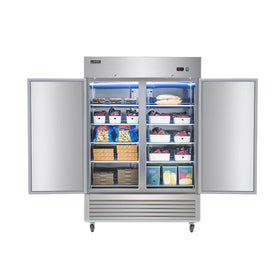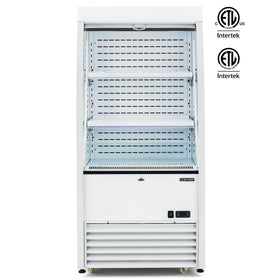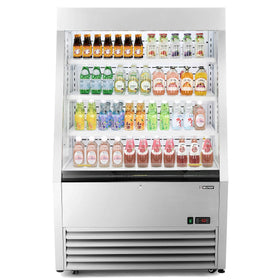When purchasing commercial kitchen equipment, you’ll likely come across two types of ETL certifications – ETL Sanitation and ETL. Both are administered by Intertek, an accredited testing laboratory, but what’s the difference between the two certifications?
In this article, we’ll compare ETL Sanitation and ETL Certifications, so you understand everything these critical foodservice equipment markings validate.
ETL Sanitation Certification
ETL Sanitation Certified appliances have undergone rigorous testing to verify hygienic design and cleanability. The certification focuses entirely on sanitation factors, including:
- Food contact zones isolated from sources of contamination
- Materials that are non-toxic, non-absorbent, and corrosion resistant
- Accessible and smooth surfaces for thorough cleaning
- Preventing ingress of bacteria, viruses, insects, or dust
- No niches where food or liquids can accumulate
- Capable of being washed, rinsed, and sanitized
By meeting the strict criteria of NSF/ANSI standards for hygiene and cleanability, ETL Sanitation Certification validates appliances are designed to minimize microbial risks and prevent cross-contamination.
ETL Certification
While ETL Sanitation covers sanitation, ETL Certification deals with the operational integrity and electrical safety of commercial appliances. Key aspects include:
- Electrical hazards like shock, electrocution, fire, and explosion
- Heating consistency for ovens, ranges, and dishwashers
- Temperature regulation for refrigerators, prep tables, and display units
- Ventilation requirements for proper airflow and humidity
- Gas safety for appliances using natural gas or propane
- Voltage fluctuations, grounding, cord connections, and wiring
- Compliance with UL safety standards and requirements
ETL Certification ensures equipment functions safely and as intended in the commercial kitchen environment after long-term use and wear.
Do Appliances Need Both?
While ETL Sanitation and ETL Certifications have distinct purposes, commercial kitchen appliances must meet both to fully comply with health codes and electrical safety. There's no need for equipment manufacturers to choose one certification over the other.
Dual ETL Sanitation and ETL Certification provides restaurants, commissaries and anyone operating commercial cooking equipment complete validation that appliances are both hygienic and electrically sound.
When making purchases, look for the ETL Sanitation Mark and ETL Certification Mark to ensure your new equipment is independently verified as up-to-standard on both sanitation and operational integrity. Investing in dual-certified appliances provides an extra layer of protection for your commercial kitchen.









